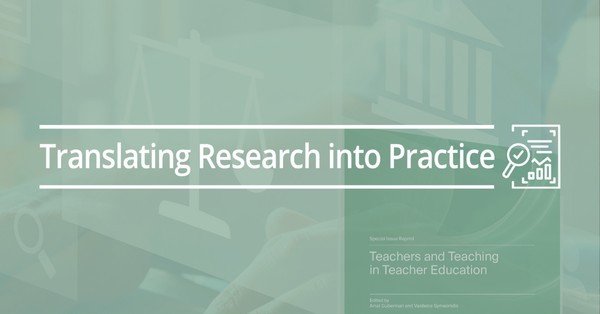Featured Article
Article Title
Forgiveness Psychoeducation with Emerging Adults: REACH Forgiveness and Community Campaigns for Forgiveness
Authors
Everett L. Worthington, Jr. - Department of Psychology, Virginia Commonwealth University, Richmond, VA 23284, USA
Abstract
Much attention has been devoted to the effectiveness of forgiveness interventions in children and adolescents, featuring two premier programs by Enright and his colleagues. Little attention has been given to psychoeducational forgiveness interventions with emerging adults. This is a narrative review of REACH Forgiveness studies with emerging adults (ages 18–25). The life tasks of emerging adults justify offering psychoeducational interventions to emerging adults. Research studies on REACH Forgiveness (k = 17), non-REACH Forgiveness studies (k = 4), and community campaigns at universities (k = 4) with emerging adults are summarized. Effect sizes per hour (d/h) for REACH Forgiveness studies (k = 13 for psychoeducational groups; k = 4 for self-administered workbooks) are reported. The proto-REACH groups (k = 5) had mean d/h = 0.104; REACH groups (k = 9) had d/h = 0.101; self-administered workbooks (k = 3) had mean d/h = 0.15; non-REACH Forgiveness studies (k = 4) had d/h =0.09. All studies were from the USA, and most were from universities. However, a recent article reported randomized controlled trials in five non-USA samples of adults (N = 4598). A 3.34-h workbook had d/h=0.16, suggesting that the workbook might be effective with emerging adults around the world. Finally, three USA Christian universities had public health immersion campaigns to promote forgiveness, and a community psychoeducational campaign in 2878 secular university students in Colombia (of ~9000 total) allowed choices among 16 psychoeducational activities. The number of activities used was proportional to the forgiveness experienced. For forgiveness, d = 0.36 plus substantial reductions in depression and anxiety, indicating strong public health potential of forgiveness psychoeducation in emerging adults worldwide.
Keywords
forgiveness; psychoeducation; emerging adults, Counseling, Burnout, Self-awareness, Wellness, Mindfulness, Reflection, Resilience, Purpose, Values, Training
Summary of Research
“This article considers emerging adulthood to be from 18 to 25. The focus is on the extent that psychoeducation of forgiveness can help emerging adults…
The prevalence [of substance misuse] in emerging and early adulthood is substantial. In 2014, binge drinking within the most recent six months was reported by 28.5 percent for people aged from 18 to 20 and 43.3 percent for people aged from 21 to 25. Not only is substance misuse a direct contributor to deaths, but substance misuse is associated with impaired judgment, reduced inhibitions, and altered moods that can all contribute to reckless driving, violent conflict, relationship problems, unsafe sex, and unwanted pregnancies. Substance abusing young adults might encounter perceived injustices because they have conflicts with dating or intimate partners, parents, siblings, teachers, and friends whom they might feel are judging them.
Unforgiveness can exacerbate problems with substance use and misuse in many ways. Unforgiveness is stressful, which adds to the allostatic load. Unforgiveness also leads to rumination, which makes most mental health problems seem more omnipresent. Unforgiveness also can itself be a stressor, and people who are already predisposed to cope with stress by substance abuse might intensify such coping efforts” (p. 1- 2).
“Forgiveness intersects with the major life tasks of emerging adults in many ways… Emotional forgiveness in the face of resentment, bitterness, and unforgiveness that often attends interpersonal hurts provides opportunities to practice emotional regulation… Many emerging adults seek to learn about forgiveness from clinical psychology, reading or consuming through media pop psychology, or listening to other influencers who have themselves been influenced by research, clinicians, or other influencers. There are many ways for emerging adult consumers to learn to practice forgiveness. These can include forgiveness education in middle and high schools…
Public health is the science of assessing and finding factors that inhibit and promote good health and that cause and cure diseases in a population and then intervening to improve health across the population by manipulating those variables. A staple intervention of public health is provision of information in ways that it can be used by most of an at-risk population. When psychological difficulties are the focus, then psychoeducation targeted at how to deal with health-inhibiting and disease-causing factors (like unforgiveness) and doing so by health-promoting and disease-curing factors (like promoting forgiveness) is a public health intervention….
To administer psychoeducation as public health, one targets mediating organizations, which are smaller organizations in which, if change is produced in many people, it will result in change in the larger system” (p. 3- 5).
“Inclusion criteria were established: (1) focus on forgiveness of others (rather than divine forgiveness or self-forgiveness); (2) treatment exclusively of young adults aged 18–25; (3) untargeted forgiveness concerns; and (4) published studies in reviewed journals” (p. 5).
“The REACH core provides its name. REACH is an acronym to cue memory for steps in emotional forgiveness: R = Recall the hurt; E = Empathize; A = Altruistic gift of forgiveness; C = Commit to forgiveness; H = Hold onto forgiveness.
Many activities are undertaken at each step to promote emotionally forgiving a target transgression…. after working through all five steps, participants are invited to make a decision to treat the person as a more valued and valuable person, solidifying decisional forgiveness… to promote generalization, participants apply the REACH steps to other identified hurts [and] they complete the self-assessment again and compare their final and initial scores…
In REACH Forgiveness psychoeducational groups, content is due to an integrative theoretical approach that uses group and psychotherapeutic techniques that facilitate the stress-and-coping theory of forgiveness… Conversation partners share deeply about the hurt they are working to forgive. They help each other by supporting and providing insights. Facilitators monitor conversations informally to observe how people handle emotional revelations…” (p. 7).
“Four lessons might be drawn from this review.
First, untargeted psychoeducation for emerging adults has been effective at promoting forgiveness.
Second, REACH Forgiveness has been repeatedly evidence-based, and both Luskin’s FFG and Enright’s process model also have some supporting evidence with untargeted interventions (although both have evidence for targeted interventions).
Third, DIY workbooks have proven numerically more effective than for groups. Workbooks provide individual treatment rather than treatment within a group, and their higher effectiveness is consistent with similar findings from the Wade et al. meta-analysis.
Fourth, despite high expectations that using REACH Forgiveness with Christian samples (which generally highly value forgiveness) would be effective, adapting to Christians appears less effective than secular application, though no statistical test has assessed the differences due to small numbers of studies” (p. 10).
The prevalence [of substance misuse] in emerging and early adulthood is substantial. In 2014, binge drinking within the most recent six months was reported by 28.5 percent for people aged from 18 to 20 and 43.3 percent for people aged from 21 to 25. Not only is substance misuse a direct contributor to deaths, but substance misuse is associated with impaired judgment, reduced inhibitions, and altered moods that can all contribute to reckless driving, violent conflict, relationship problems, unsafe sex, and unwanted pregnancies. Substance abusing young adults might encounter perceived injustices because they have conflicts with dating or intimate partners, parents, siblings, teachers, and friends whom they might feel are judging them.
Unforgiveness can exacerbate problems with substance use and misuse in many ways. Unforgiveness is stressful, which adds to the allostatic load. Unforgiveness also leads to rumination, which makes most mental health problems seem more omnipresent. Unforgiveness also can itself be a stressor, and people who are already predisposed to cope with stress by substance abuse might intensify such coping efforts” (p. 1- 2).
“Forgiveness intersects with the major life tasks of emerging adults in many ways… Emotional forgiveness in the face of resentment, bitterness, and unforgiveness that often attends interpersonal hurts provides opportunities to practice emotional regulation… Many emerging adults seek to learn about forgiveness from clinical psychology, reading or consuming through media pop psychology, or listening to other influencers who have themselves been influenced by research, clinicians, or other influencers. There are many ways for emerging adult consumers to learn to practice forgiveness. These can include forgiveness education in middle and high schools…
Public health is the science of assessing and finding factors that inhibit and promote good health and that cause and cure diseases in a population and then intervening to improve health across the population by manipulating those variables. A staple intervention of public health is provision of information in ways that it can be used by most of an at-risk population. When psychological difficulties are the focus, then psychoeducation targeted at how to deal with health-inhibiting and disease-causing factors (like unforgiveness) and doing so by health-promoting and disease-curing factors (like promoting forgiveness) is a public health intervention….
To administer psychoeducation as public health, one targets mediating organizations, which are smaller organizations in which, if change is produced in many people, it will result in change in the larger system” (p. 3- 5).
“Inclusion criteria were established: (1) focus on forgiveness of others (rather than divine forgiveness or self-forgiveness); (2) treatment exclusively of young adults aged 18–25; (3) untargeted forgiveness concerns; and (4) published studies in reviewed journals” (p. 5).
“The REACH core provides its name. REACH is an acronym to cue memory for steps in emotional forgiveness: R = Recall the hurt; E = Empathize; A = Altruistic gift of forgiveness; C = Commit to forgiveness; H = Hold onto forgiveness.
Many activities are undertaken at each step to promote emotionally forgiving a target transgression…. after working through all five steps, participants are invited to make a decision to treat the person as a more valued and valuable person, solidifying decisional forgiveness… to promote generalization, participants apply the REACH steps to other identified hurts [and] they complete the self-assessment again and compare their final and initial scores…
In REACH Forgiveness psychoeducational groups, content is due to an integrative theoretical approach that uses group and psychotherapeutic techniques that facilitate the stress-and-coping theory of forgiveness… Conversation partners share deeply about the hurt they are working to forgive. They help each other by supporting and providing insights. Facilitators monitor conversations informally to observe how people handle emotional revelations…” (p. 7).
“Four lessons might be drawn from this review.
First, untargeted psychoeducation for emerging adults has been effective at promoting forgiveness.
Second, REACH Forgiveness has been repeatedly evidence-based, and both Luskin’s FFG and Enright’s process model also have some supporting evidence with untargeted interventions (although both have evidence for targeted interventions).
Third, DIY workbooks have proven numerically more effective than for groups. Workbooks provide individual treatment rather than treatment within a group, and their higher effectiveness is consistent with similar findings from the Wade et al. meta-analysis.
Fourth, despite high expectations that using REACH Forgiveness with Christian samples (which generally highly value forgiveness) would be effective, adapting to Christians appears less effective than secular application, though no statistical test has assessed the differences due to small numbers of studies” (p. 10).
Translating Research into Practice
Counseling Applications
“Future research is needed on psychoeducational forgiveness interventions with early adults. Some targeted studies could address forgiveness when injustices arise for early adult issues such as rejection of one’s identity with people who identify as LGBTQ+, job-related discrimination in early career, failed romantic relationships, family conflicts, etc…
Burnout Considerations
…It would seem to be especially attractive to busy college students where every hour seems jam-packed with activity; the 3.34-h (on the average) duration makes it attractive as does the downloadability that allows students and other busy nonstudents to download it and work on it on their own schedule.
Also, the workbook is free and self-interpretable, making it convenient for a computer-literate and web-oriented generation. The iterations of the REACH Forgiveness treatments are getting progressively more refined” (p. 13).
“Future research is needed on psychoeducational forgiveness interventions with early adults. Some targeted studies could address forgiveness when injustices arise for early adult issues such as rejection of one’s identity with people who identify as LGBTQ+, job-related discrimination in early career, failed romantic relationships, family conflicts, etc…
Burnout Considerations
…It would seem to be especially attractive to busy college students where every hour seems jam-packed with activity; the 3.34-h (on the average) duration makes it attractive as does the downloadability that allows students and other busy nonstudents to download it and work on it on their own schedule.
Also, the workbook is free and self-interpretable, making it convenient for a computer-literate and web-oriented generation. The iterations of the REACH Forgiveness treatments are getting progressively more refined” (p. 13).
Other Interesting Tidbits for Researchers and Clinicians
Reflection on Program Design
“Many REACH Forgiveness groups had a duration of only 6 h [however] the DIY workbook [was refined] to 3.34 h and achieved d about 0.5.
Resilience Building and Training Innovations
Most interventions can be improved. With apps becoming popular, can REACH Forgiveness be shortened further to achieve the same results?
… [Results] have shown that a general community-based psychoeducational program can have strong effects. Additional research in other countries is needed to generalize that finding” (p. 13).
“Many REACH Forgiveness groups had a duration of only 6 h [however] the DIY workbook [was refined] to 3.34 h and achieved d about 0.5.
Resilience Building and Training Innovations
Most interventions can be improved. With apps becoming popular, can REACH Forgiveness be shortened further to achieve the same results?
… [Results] have shown that a general community-based psychoeducational program can have strong effects. Additional research in other countries is needed to generalize that finding” (p. 13).
Additional Resources/Programs
As always, please join the discussion below if you have thoughts or comments to add!
- The Fragrance that the Violet Sheds on the Heel that has Crushed It” – Forgiveness as a Means to Transformation with Everett Worthington
- The Therapeutic Triad of Disability (Part 1) – Forgiveness, Self-Compassion, and Resilience with Susan Stuntzner and Angela MacDonald
- The Therapeutic Triad of Disability (Part 2) – Forgiveness, Self-Compassion, and Resilience with Susan Stuntzner and Angela MacDonald
- The Virtue of Humility – Research and Implications for Counseling with Everett Worthington and Martin Timoney














